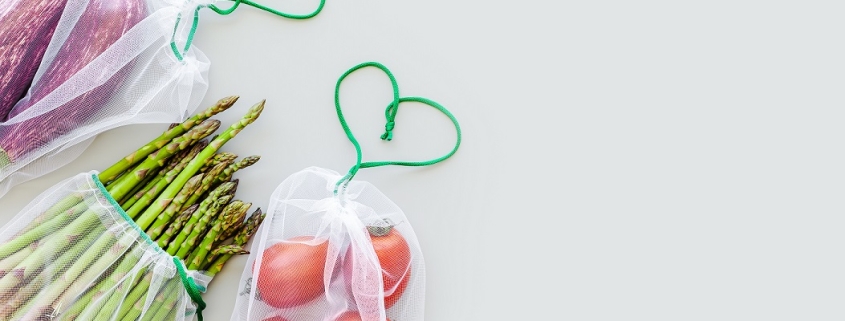Is Your Produce Storage Helping or Hurting Your Foods?
By Noel Ugarte, MS, RD | Registered Dietitian
Where we store produce – our fruits and vegetables – impacts their shelf-life. Some fruits and vegetables like high humidity, others can sit on the counter, while some put off high amounts of ethylene gas causing nearby produce to ripen (or spoil) quicker. If you’re trying to eat more fresh fruits and vegetables, then knowing where they should live in your kitchen is very important, but it can be confusing. Here is a quick produce storage guide to help you store food in the correct location:
Produce Storage Tips
Crisper Drawer:
- Apples*
- Pears*
- Berries
- Grapes
- Cantaloupe
- Honeydew
- Watermelon (cut)
- Broccoli*
- Cauliflower*
- Peppers
- Leafy greens (kale, lettuce, spinach, arugula, etc.)
- Carrots
- Corn
- Cucumber*
- Mushroom
- Zucchini
Countertop:
- Bananas*
- Citrus
- Stone fruit
- Tomatoes
Dark and away:
- Onions*
- Garlic
- Potatoes*
- Winter squash
- Watermelon (whole)
Pro Tip 1: If you’re wondering about produce that is not on this list, notice where the produce is stored at your grocery store. Are they misted in a refrigerated shelf? Are they in a room temperature bin? This can tell you where to store them at home.
Pro Tip 2: Want to eat a piece of produce that is not yet ripe? Place the unripe produce in a paper bag on the counter for 1-2 days. This traps the ethylene gas around the fruit or vegetable and promotes quicker ripening time.
Pro Tip 3: Is your countertop produce ripening a bit too quick? Toss them in the crisper drawer in the fridge to slow the ripening process and get a few more days out of them.
*These are fruits and vegetables that emit especially high amounts of ethylene gas. Ethylene is a natural gas produced by fruits and vegetables as a growth regulator. The more ethylene a fruit or vegetable produces, the quicker it will ripen. Unfortunately, the gas can also quicken the ripening process of other surrounding produce. Store these fruits and vegetables away from others to help prolong shelf life.
If you have more questions about what foods are helpful for a healthy diet, or for specific health needs, contact NOAH today to speak with one of our Registered Dietitian Nutritionists. To learn healthy meals, snacks, and more to make with your produce, check out the NOAH recipe library!





Trackbacks & Pingbacks
[…] Is Your Produce Storage Helping or Hurting Your Food? […]
Comments are closed.